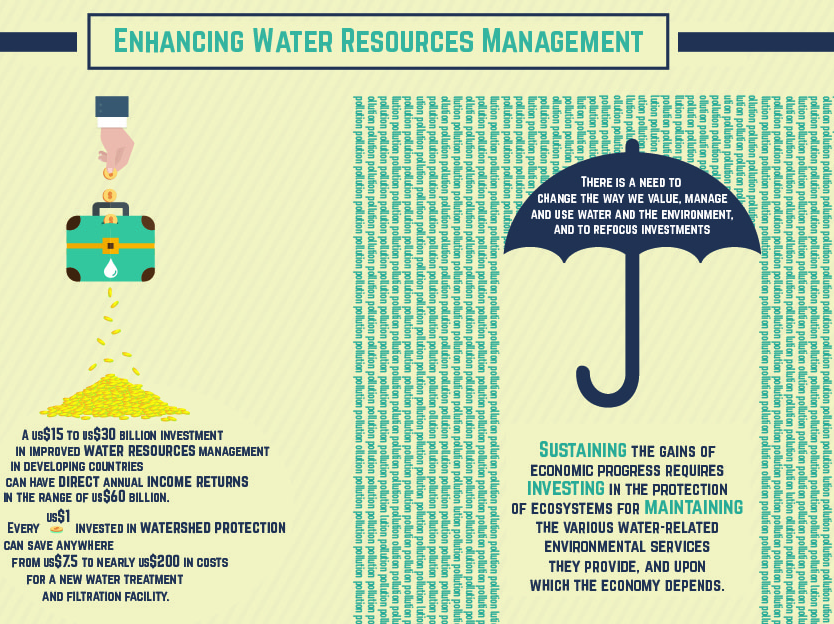Water is essential for human health, economic growth and safeguarding our environment, yet we have allowed this valuable resource to be withdrawn and utilized faster than it can be replenished. The increasing competition for water, pollution from agricultural runoff, weak water management and aging infrastructure all contribute to a water availability crisis that was names the top global risk in terms of global impact by the World Economic Forum.
Modern agriculture, one of the major causes of water scarcity, is leaving rivers, lakes and underground water sources dry in many irrigated areas around the world by consuming 70% of the planet’s available freshwater. This is exacerbated by the fact that 56% of total food production currently resides in areas of high or extreme water stress.
The good news is that natural, organic and ecological practices in agriculture are paving the way towards a new and higher standard for water use.

Source: United Nations 2015
Erosion, desertification and land degradation are one of the greatest sources of water loss today. With no protective cover water is lost through evaporation and contamination thus preventing the replenishment of water reserves. Even in irrigated croplands, the land’s water retention diminishes over time nutrients in the soil are consumed and the beneficial microorganisms become all but exhausted. Reforestation with draught resistant trees, the use of annual cover crops in addition to planting techniques that are adequate for the actual terrain reduces soil erosion while maintaining healthy and fertile topsoil. This ensures the absorption and storage of 87% more water than eroded or degraded soil.
While synthetic pesticides and fertilizers are an important aspect of modern agriculture, helping to ensure the yields necessary for our growing population, their level of environmental contamination is extraordinary. 98% of the chemicals used in crop protection never reach their intended target, thus polluting water and soil in the surrounding areas. Some of this contaminated water percolates into groundwater and aquifers thus broadening the reach and damage of these hazardous chemicals to our ecosystem. The reuse of the water can only be accomplished through extensive (and expensive) treatment. Even then, the average American has traces of 29 synthetic pesticides in their body due to our pervasive use of synthetic crop protection. The use of natural, organic and biodegradable pesticides and fertilizers greatly reduces water pollution due to their short term duration, permitting the higher quality water to reintegrate into the cycle and replenish reserves in a safe and healthy manner.
Modern, leak proof, intelligent irrigation systems are also key in the fight against water scarcity, saving 60% of the water lost from outdated infrastructure still evident around the world today. These systems reduce the amount of water use as they are tailored specifically to the crop and surrounding environment.
Legislation that severely sanctions pollution in addition to rewarding water conservation as well as organic and ecological practices in agriculture are now paving the way to a new and higher standard for water protection across all industries.
Agriculture has an obligation to strategically adapt its water management practices, not only for the health and survival of people around the world or simply for protection for our environment, but also for its own sustainable development. Farming needs more water than any other industry, therefore the responsibility to improve water scarcity falls greatly within its realm. With the rise of bio crop care, innovative irrigation techniques and stricter water regulations, the foundation of a new era of sustainable agriculture is securely in place.